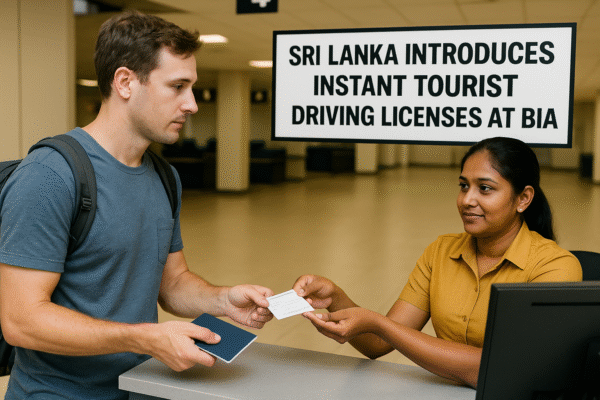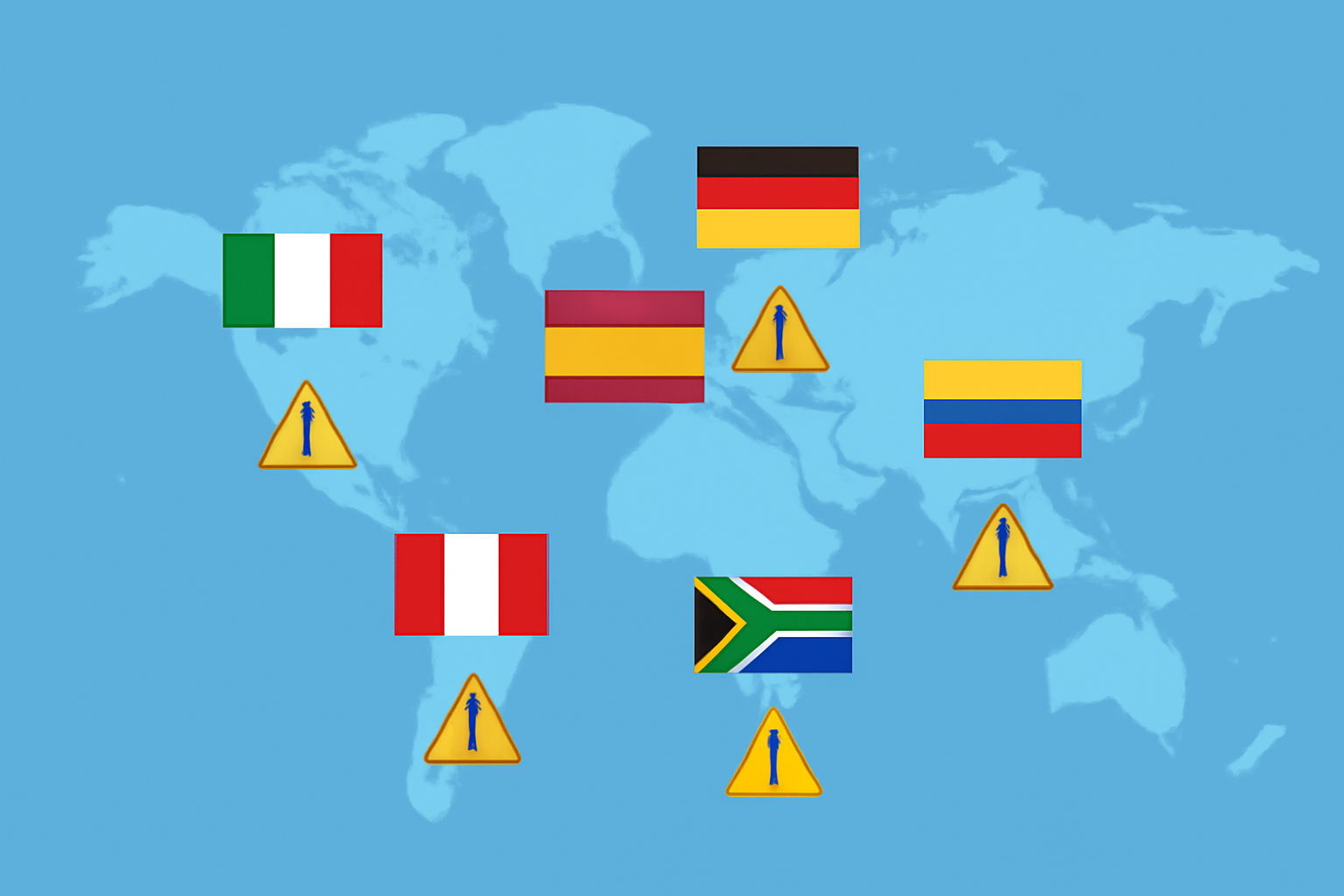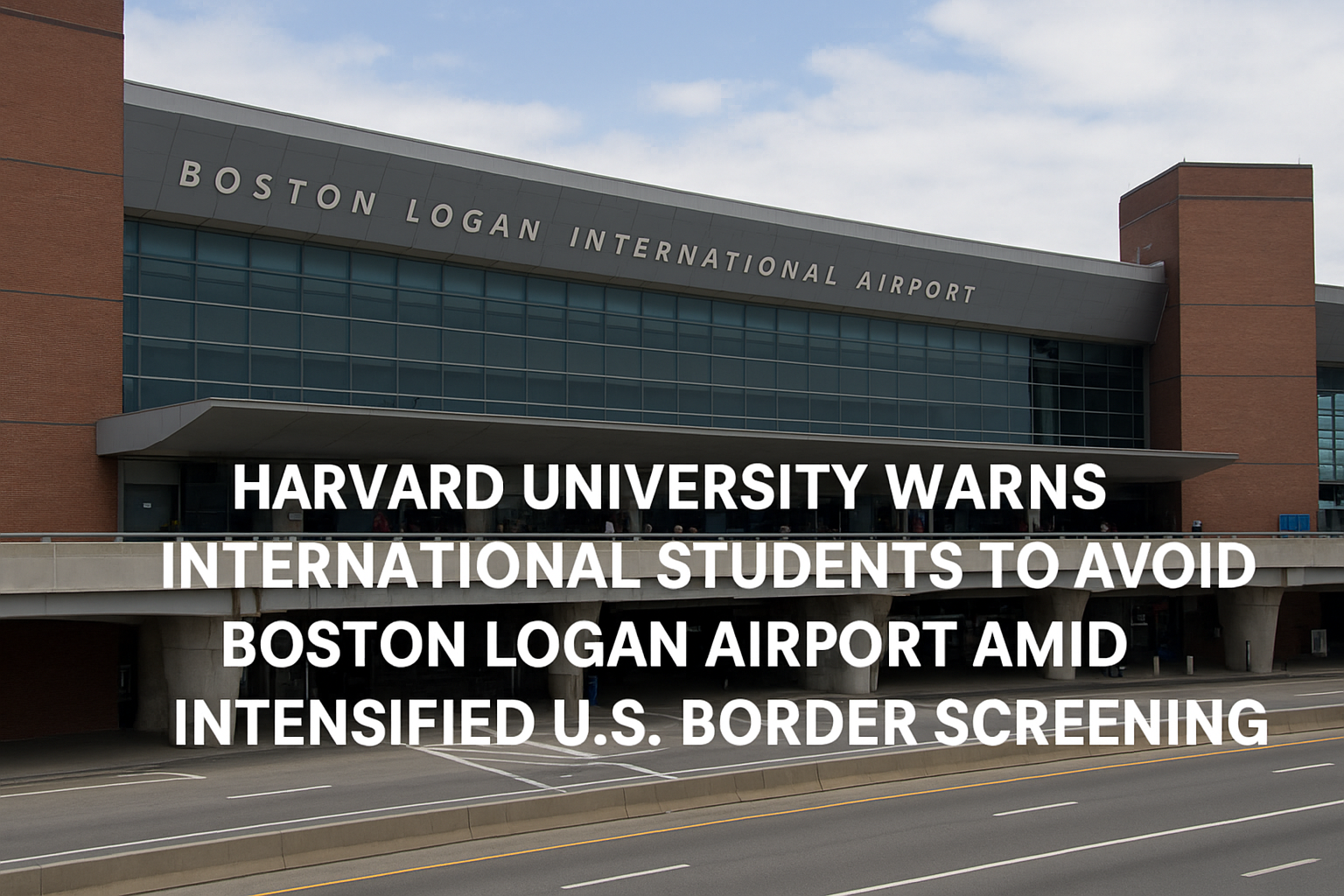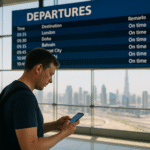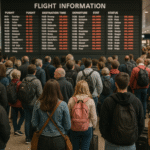Harvard University has issued a significant travel advisory for its international student body, urging them to avoid arriving at Boston Logan International Airport due to an uptick in stringent U.S. Customs and Border Protection (CBP) screenings. The advisory follows increasing reports of heightened visa scrutiny and potential entry denials at Logan Airport, particularly affecting students from countries like Iran and China, and those pursuing advanced academic fields such as STEM and artificial intelligence.
The advisory was presented during a private online session led by Harvard International Office, in partnership with the Harvard Law School Immigration and Refugee Clinic. The forum provided international students with critical guidance on navigating the evolving immigration landscape in the United States, especially amidst a politically charged environment.
Heightened U.S. Border Security Prompts University Action
In recent months, the Department of Homeland Security (DHS) and U.S. State Department have implemented more rigorous inspection protocols at several international gateways, with Boston Logan reportedly among the most aggressive. As a result, Harvard is advising incoming students to consider alternative points of entry into the United States, such as New York’s JFK Airport, Chicago O’Hare International Airport, and Los Angeles International Airport (LAX)—locations that have demonstrated more consistent and transparent customs clearance procedures for academic visa holders.
Visa and Social Media Screening: A Growing Concern
According to Harvard officials, one of the most concerning trends for international travelers is the growing inclusion of social media analysis in visa application reviews. Students were warned that posts or online behavior interpreted as politically sensitive—especially support for Palestinian causes, criticism of U.S. foreign policy, or content viewed as antisemitic—could trigger red flags during the visa approval process or entry screening.
The university further highlighted that CBP agents are legally allowed to demand access to personal electronic devices, including smartphones and laptops. Deleting personal data prior to travel could be perceived as suspicious behavior, potentially interpreted as an attempt to conceal information.
Iranian and Chinese Students Face Targeted Scrutiny
The advisory was particularly urgent for students from Iran, who, according to Harvard Law School staff attorney Jason Corral, have faced “disproportionate levels of secondary screening and entry denials” at Logan Airport in recent months. The university also noted increasing scrutiny of students from China, especially those involved in research-intensive programs or disciplines flagged by national security agencies.
These groups are reportedly more vulnerable to visa delays, additional questioning, or denials due to current federal enforcement priorities. U.S. immigration officers are increasingly viewing academic fields such as artificial intelligence, data science, and robotics through a national security lens.
STEM Students and Research Scholars Urged to Prepare Thoroughly
International students in science, technology, engineering, and mathematics (STEM) programs, as well as those conducting sensitive research, were strongly encouraged to carry detailed documentation of their academic purposes, including letters from faculty, proof of funding, and research outlines. These documents may help justify the nature of their visit during intense CBP interviews.
With the Trump administration’s reinstated enforcement stance on academic immigration policy, students entering the country even on valid F-1 or J-1 visas may be subjected to enhanced background checks. Government officials are now known to coordinate more frequently with U.S. academic institutions to validate claims made by students at ports of entry.
Context: Political Backdrop and Legal Tensions
This advisory follows a recent legal victory for Harvard University, which successfully secured a preliminary injunction against the Trump administration’s attempt to block the enrollment of international students during visa policy shifts. Despite this win, Harvard remains a target of federal scrutiny, having recently lost over $2.6 billion in federal research funding and facing public criticism over its diversity, equity, and inclusion (DEI) policies.
Federal officials have also questioned the university’s tax-exempt status and research affiliations, making it increasingly important for students to be aware of how political developments might impact their immigration experience.
Proactive Institutional Support for International Students
Recognizing the uncertainty international students face, Harvard’s advisory is part of a broader trend among U.S. universities providing preemptive legal and procedural guidance. Other Ivy League institutions have also reportedly warned incoming international students to stay updated on travel alerts and consider legal counsel if they are traveling from countries under increased scrutiny.
This situation also underscores the delicate balance between national security concerns and academic freedom. Institutions like Harvard are working to ensure students continue to feel welcomed, protected, and informed as they pursue education in the U.S.
Practical Travel Tips for International Students Entering the U.S.
Harvard’s advisory concluded with several actionable recommendations:
- Enter through JFK, O’Hare, or LAX to reduce the risk of detainment or denial.
- Avoid deleting content from electronic devices before travel.
- Be transparent about academic purposes and have supporting documentation.
- Refrain from posting politically sensitive content on public platforms prior to travel.
- Keep digital copies of visa documents, admission letters, and research credentials on cloud storage for backup access.
As U.S. immigration policies continue to shift, particularly in the context of heightened national security priorities and political pressures, international students are advised to remain vigilant and informed. Harvard’s guidance reflects a broader movement among academic institutions to support the rights and safety of foreign students while navigating an increasingly complex and scrutinized immigration system.
For more travel news like this, keep reading Global Travel Wire



